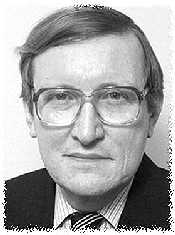What do religion writers do? How do I get started on the beat?

By Richard N. Ostling
The Associated Press*
How do I get started on the beat?
People looking for a way to apply their personal interest or academic study in religion often think news writing would be a good outlet. Think again. A keen interest in reporting must come first, with religion specialization as an add-on if the occasion arises. Without a love for non-religion news, you won’t love religion news.
Given the inevitable discouragement, exacerbated by a tight job market, the news business should be the goal only for a highly motivated individual who just can’t get enough of it. Chances are, if you haven’t had the itch to do some serious journalism by the time you’re out of college, this isn’t your calling.
News shops want versatile people with keen skill in information-gathering and clear writing under pressure, not applicants with religion degrees who convey narrow interest in the subject. Also, they rightly fear someone who might push a personal religious agenda. Religion writing for a “secular” outlet is far different from religious writing for a faith community. Our task is to provide information and interpretation for a general readership, not to uphold religious institutions or give people guidance in their search for faith-no matter how valid those tasks might be for others.
Whether you’re a green reporter or a seasoned one newly reassigned to this beat, where is guidance found? Fellow religion reporters are almost always helpful to new competitors and colleagues; you can learn much from reading their work.
Newcomers have many resources that weren’t available years ago.
The Internet is crowded with stuff, though much of it is unreliable or of murky sponsorship. Beware, and always monitor credentials and spin.
Many high-quality reference works have appeared in recent years, and should be added to the office library or your personal collection. Academicians have become easier to hunt down.
Despite my previous remarks, I recommend that anyone with long-term commitment to the beat acquire some solid academic training if he/she doesn’t have it already.
For me, the slog of getting an M.A. in religion through night classes while working full time was amply rewarded during numerous difficult assignments.
These days, most towns have colleges offering religion courses. There are, of course, excellent religion writers without such training, but they have compensated with a lifelong regimen of reading, alongside the rest of us.
What do religion writers do? Most anything. A few comments:
- Some places limit coverage to daily spot news. Some do the opposite, keeping most pieces for a weekend religion section. In my opinion, both are desirable. Some do mostly hard news, some mostly soft features. Again, I like a balance.
- Some expect a weekly column, which ideally could consume most of your working hours, a luxury you’re unlikely to enjoy.
- There’s an encouraging trend of using religion writers in team coverage when faith issues erupt in national and global crises.
- Formats to play with when designing religion coverage: Pros-and-cons lists, letters to the (religion) editor, talkback pieces, op-eds, Q-and-A’s, FAQ boxes, documentary texts, photo essays, jazzy graphics.
- The job can involve tedium, especially compiling weekly notices. If that’s your task, consider it an opportunity to serve the audience, learn about local congregations and build goodwill among future sources.
I once asked a missionary to Japan what it was like learning the language and he replied, “Well, the first 10 years are the hardest.” So it is with the religion beat. You’ll soon learn that the job, done right, has an aspect of impossibility, nay, infinity. Be patient with yourself, and pray the boss is, too. The good old AP is always there for backup.
So, what is good religion news writing? There are as many definitions as there are religion writers. Perhaps no topic provides such potential for originality and exploration, because America’s religions are numerous, complex and getting more so. The impact of faith is palpable in all areas of human endeavor. These challenges are the reason that experienced religion reporters will tell you in all honesty that they have the best beat of all.
*This article was written in 2001, at the time Richard Ostling was writing for the Associated Press. Ostling is now a freelancer.
